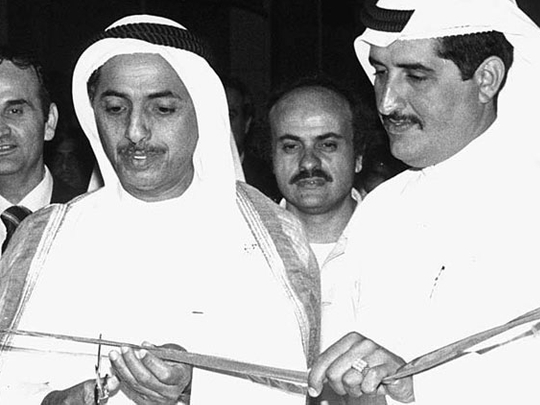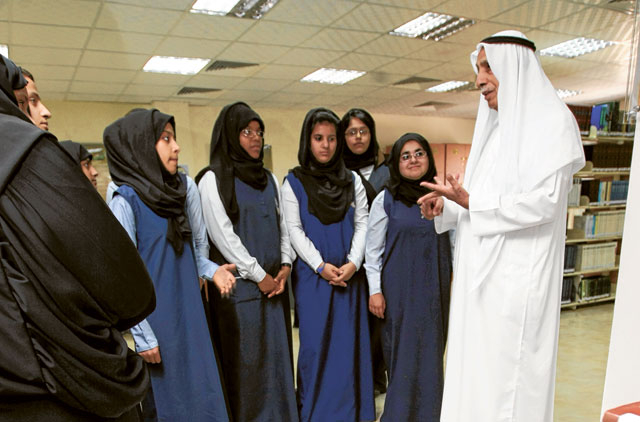
Dubai: “My passion and dedication to work, faith and trust are the secrets of my success,” Juma Al Majid says. Work is at the centre of his life. “If you want to exist, you must work.”
For a man who has achieved much in the world of business and philanthropy, Al Majid lives a modest life.
His modest way of life comes from the teachings of his family, his culture and his religion. “Our religion says that excessive spenders are the brothers of the devil,” Al Majid remarked, “Showing off doesn’t add anything to your name, fame and reputation. Only weak and shaky people need to boast.
“If we save this money and spend it on the education of needy people, it would be far better,” he added.
However, Al Majid remarked that people should not deprive themselves and live in misery. “I know my expenses; no increase or decrease,” he says.
Al Majid was born in 1930 in the Al Shindagha area in Dubai to a small family that belonged to the tribe of Aal Bu Muhair. His early life was shaped by his father Majid Bin Abdullah Qraiban, mother Aisha Majid Al Ghurair, a brother Rashid and two sisters Hamda and Shamsa.
Early years
His mother wanted him to go to school and continue his education as far as he could, but trading was in his blood. Al Majid sold stationery and candy at his school to earn money. He left school to go work before finishing his primary education.
“I wish that the old Al Shindagha was still there,” he says, fondly recalling his early life. In one room of the Centre for Culture and Heritage is a 50-year-old map of the Al Shindagha area with the names of the Emirati families that used to live there.
The Al Majid family house, marked on the map, had one room built of gypsum, while the other part was a tent made of palm leaves.
Despite the lack of wealth, Al Majid did not consider his family poor. “The poor man is the one who refused to work. And anyone who can work and feed himself and his family is not poor,” he says
He dismisses those who refuse to work because they say cannot find a suitable job. “A man should work in any job even if it doesn’t match his qualifications rather than be dependent on others,” Al Majid says. “Such people don’t deserve charity. Instead of giving them money, you should give them work.”
Humble approach
Those who work for Al Majid perceive him as a serious man who is clear about what he wants but also very patient and not demanding. When he needs a secretary, he does not call, but goes to her desk to speak.
Every morning he makes a list of notes, articles and information to be sent to people in the company (or to other people he knows) that might benefit from them. Al Majid is a voracious reader.
On his desk are at least five books — full of yellow post-its — which he is reading simultaneously. ”Sometimes I find important information which we should highlight or clarify; and sometimes I grab interesting and useful books and research titles which we should seek if we don’t have it,” he explains.
A private man, Al Majid does not easily talk about his family. He attributes a good part of his success to the woman in his life.
He says: “Behind every successful man is a good woman, who supports and helps him in the good and bad times in his life.”
The father of a son and two girls says: “Continuity is not in the number of children but in a good reputation and useful deeds.” In any event, he considers all the children of the world his, and both boys and girls have the same importance in family and life.
His son Khalid is Al Majid’s right hand. “Khalid is handling all Al Majid businesses, but his first concern is charity work, even before the commercial ones.”













